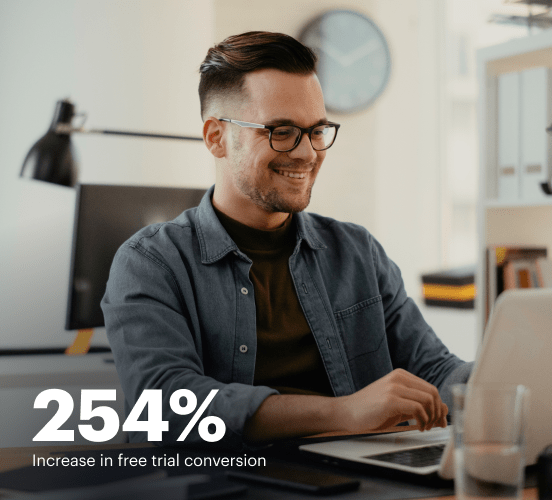Adobe Portfolio vs. Shopify: the best platform for a seamless web experience
Discover how Adobe Portfolio compares to Shopify regarding features and usability. Find out which platform provides the competitive advantage your business deserves.
Get startedSee how Instapage stacks up against the competition
| Feature | Instapage | Other builders |
| Drag-and-Drop Tools | ||
| Conversion-optimized templates | ||
| Manual and AI-powered A/B Tests | ||
| AI content suggestions | ||
| Popups and sticky bars | ||
| Canvas and grid blocks | ||
| Reusable and global elements | ||
| Form and popup builders | ||
| Built-in Heatmaps | ||
| Central analytics dashboard | ||
| Ad-to-page personalization and collections | ||
| Contacts, lists, and email | ||
| Dedicated, full-service CRO experts | ||
| Enterprise-ready platform |
Leading the way in building high-performing landing pages





Why Instapage is the smarter choice for your campaigns
Get everything you need to build, scale, and optimize high-converting landing pages—without coding.
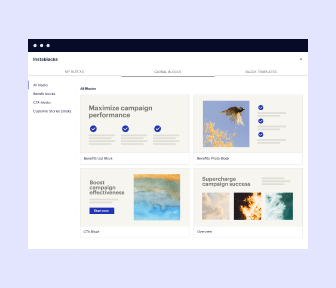
Easier page building without coding
Instapage offers a flexible and seamless page creation experience with a library of 500+ conversion-focused layouts, Instablocks®, a drag-and-drop builder, and AI content generation. With technologies like Thor Render Engine®, you can create on-brand, mobile-responsive landing pages that load quickly and start converting during initial visitor clicks.
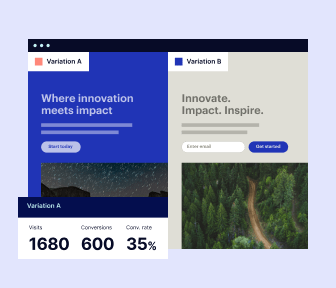
More insights — better results
Instapage lets you see in detail how each landing page experience and variation is performing so you can make targeted changes that boost page conversions. Use heatmaps for a better understanding of on-page activities, run A/B tests and AI-assisted experiments, and then track and evaluate results within robust analytics dashboards.
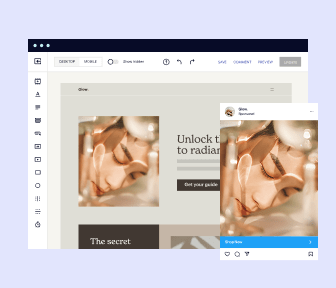
More personalized experiences
Instapage lets you quickly create high-performing landing pages tailored to each of your ad campaigns. Deliver personalized experiences for distinct audiences using dynamic text replacement. Effortlessly align specific advertisements to unique pages with AdMaps. Monitor audience-level metrics using our advanced data tools.
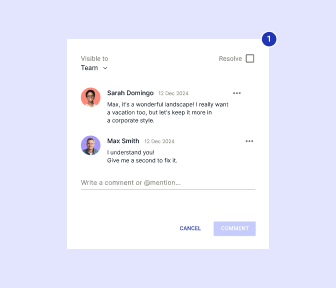
Built-in collaboration
Instapage collaboration capabilities bring your entire team together to speed up the process of landing page review, approval, and launch. No more frustrating and unnecessary revisions or edits scattered across emails. Provide instant feedback, conduct real-time page edits, and securely share your pages with outside stakeholders.
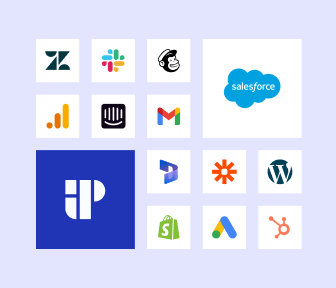
Free up time for your business
Invest time into business growth, not busy work. Launch landing pages faster with reusable forms and templates. Build once, reuse forever.
Explore all integrations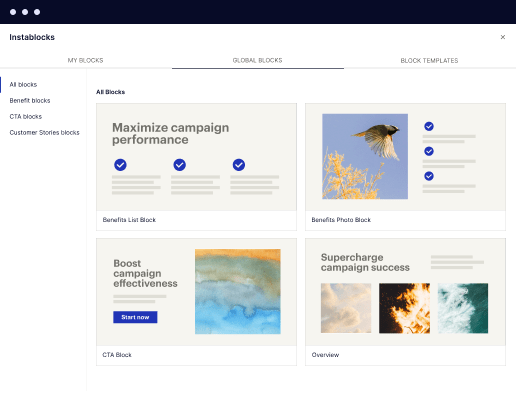
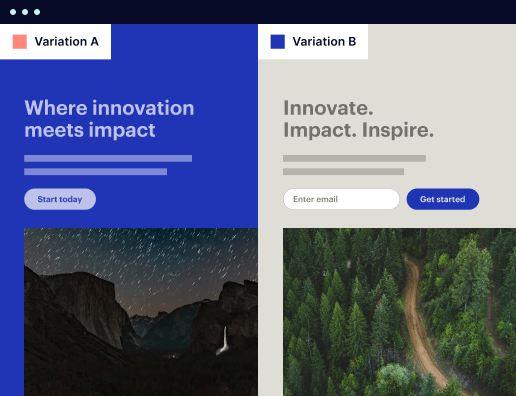
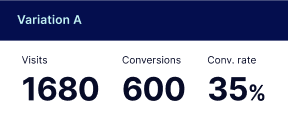
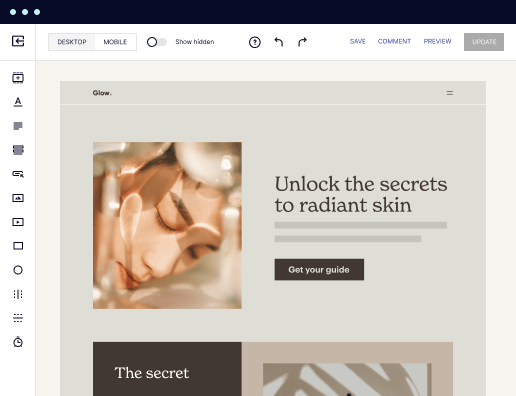

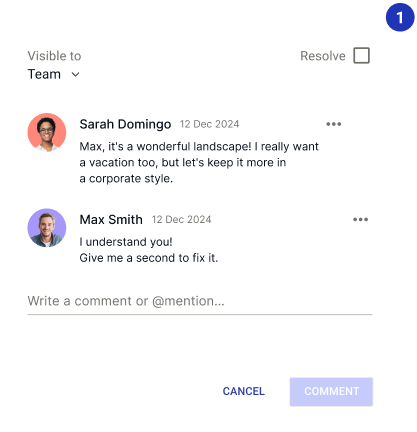
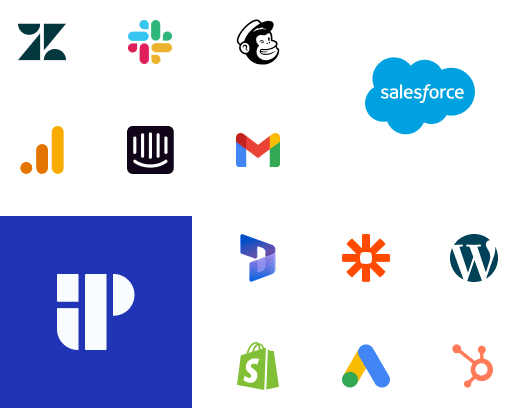
Easier page building without coding
Instapage offers a flexible and seamless page creation experience with a library of 500+ conversion-focused layouts, Instablocks®, a drag-and-drop builder, and AI content generation. With technologies like Thor Render Engine®, you can create on-brand, mobile-responsive landing pages that load quickly and start converting during initial visitor clicks.
More insights — better results
Instapage lets you see in detail how each landing page experience and variation is performing so you can make targeted changes that boost page conversions. Use heatmaps for a better understanding of on-page activities, run A/B tests and AI-assisted experiments, and then track and evaluate results within robust analytics dashboards.
More personalized experiences
Instapage lets you quickly create high-performing landing pages tailored to each of your ad campaigns. Deliver personalized experiences for distinct audiences using dynamic text replacement. Effortlessly align specific advertisements to unique pages with AdMaps. Monitor audience-level metrics using our advanced data tools.
Built-in collaboration
Instapage collaboration capabilities bring your entire team together to speed up the process of landing page review, approval, and launch. No more frustrating and unnecessary revisions or edits scattered across emails. Provide instant feedback, conduct real-time page edits, and securely share your pages with outside stakeholders.
Free up time for your business
Invest time into business growth, not busy work. Launch landing pages faster with reusable forms and templates. Build once, reuse forever.
Explore all integrationsGet started with Instapage in a few steps
-
Create your Instapage account
Start with Instapage by signing up via Google or your email. You'll get access to a free 14-day trial to discover Instapage capabilities. Feel free to cancel anytime during the 14-day trial if you decide that our product is not suitable for your business. -
Build and personalize your page
Create your first landing page from scratch or choose a template from 500+ customizable layouts. Use the drag-and-drop builder to add page elements, fonts, and backgrounds, refine content with AI, or add custom HTML, Javascript, and CSS. -
Review and make edits
Collaborate on page designs and streamline review processes. Invite your team members and stakeholders to review, edit, and provide feedback on your landing page. Collaborate knowing your page is confidential and only accessible to authorized users. -
Publish and track page performance
Publish your page to a domain or custom URL. Connect your pages to the ads you've created and track page performance within the analytics dashboard, run A/B tests and AI experiments, analyze results, and continuously optimize your landing page to maintain high conversions.
Adobe Portfolio vs. Shopify: The Ultimate Showdown (With a Twist)
The showdown between Adobe Portfolio and Shopify is nothing short of exhilarating, and for those navigating the increasingly competitive digital landscape, the choice can feel overwhelming. Both platforms boast their unique strengths, catering to diverse needs ranging from budding entrepreneurs to seasoned web developers. Picture yourself in a bustling marketplace with Adobe Portfolio's sleek designs attempting to capture your audience's attention while Shopify’s powerful e-commerce capabilities offer a strong alternative. As we delve into the details, let's explore the strengths and challenges of each platform, all while keeping an eye on the surprise contender waiting in the wings: Instapage. This will be a journey through features, usability, performance, and more — where we’ll hopefully make the decision-making process a tad easier and more fun. So strap in and prepare for a thorough analysis that balances wit with insight, making the complexity of the web-building world just a bit clearer.
Introducing the Titans of Digital Creation
When it comes to platforms like Adobe Portfolio and Shopify, we’re talking about titans in the realm of website building and e-commerce. Adobe Portfolio emerges from the creative powerhouse of Adobe, renowned for its user-friendly design tools that allow individuals to showcase their artistic flair. Its sleek, visually appealing templates make it a prime choice for photographers, designers, and artists wanting to create stunning online portfolios with minimal fuss. On the other hand, Shopify packs a punch in the e-commerce space, known for transforming small businesses into booming online stores. With its robust features and customizable options, Shopify is a favorite among entrepreneurs looking to tap into the online retail market effortlessly. As we gear up for this comparison, the anticipation builds around these contenders, but don’t forget about Instapage, one platform lurking in the backdrop, ready to potentially steal the spotlight.
Feature Face-off: Who's Got the Edge?
In the realm of features, both Adobe Portfolio and Shopify hold their own. Adobe Portfolio shines with its design-centric capabilities, allowing users to create visually captivating websites that reflect their personal brand. The drag-and-drop functionality makes it a breeze to use, even for those who may not be tech-savvy. Shopify, however, comes equipped with a toolkit aimed at full-scale e-commerce. Inventory management, payment gateways, and shipping integrations make it a go-to for serious online sellers. While both platforms are certainly impressive, we’ve got a secret weapon simmering on the sidelines—Instapage, which offers extraordinary features like customizable landing pages that could appeal immensely to marketers. This feature face-off sets the stage for an exciting exploration of the tools available in each platform's belt, as we delve deeper into the specifics and how they cater to different audiences.
Navigating Usability: A User-Friendly Battle
Usability is crucial when choosing a platform, particularly for users ranging from novices to seasoned pros. Adobe Portfolio is like that friendly instructor, guiding new users through its intuitive interface that begs to be explored—think of it as a welcoming community where your creativity can flourish without feeling overwhelmed. Conversely, Shopify resembles an experienced coach; its robust e-commerce setup can feel slightly complex at first but is incredibly rewarding as you get the hang of it. There’s humor in suggesting that learning to navigate Shopify’s rich features can feel like a thrilling adventure—full of twists and turns! Both platforms aim to provide their users with a smooth ride but cater to varying levels of experience, making this aspect of our comparison essential for potential users weighing their choices.
What Adobe Portfolio Brings to the Table:
- Visually stunning templates for creative professionals
- User-friendly drag-and-drop interface
- Easy integration with Adobe Creative Cloud
- Mobile-responsive designs for any device
- Ability to showcase work through customizable galleries
Shopify's Power-Packed Features:
- Comprehensive e-commerce functionalities
- Mobile optimization and responsive themes
- Secure payment gateways and SSL certification
- Robust inventory management system
Features That Bind: Shared Strengths Across Platforms:
- Responsive design options for various devices
- SEO-friendly framework to boost visibility
- Integration capabilities with third-party tools
- Strong community support and resources
- Customizable options for branding
- Analytics tools to track visitor behavior
As we step back and take stock, it's clear both Adobe Portfolio and Shopify offer compelling features, yet an intriguing contender awaits in Instapage. While these two platforms battle it out, Instapage emerges as a solid option due to its unique capabilities in landing page optimization, propelling it into a slightly different category but one that integrates seamlessly for users looking for those results-driven approaches.
Round to Performance: Speed and Responsiveness Showdown
In today's fast-paced environment, performance can make or break a platform's appeal. Page loading times are vital, akin to waiting for a slow elevator that seems stuck between floors — patience wears thin quickly. Both Adobe Portfolio and Shopify excel in performance by offering fast-loading pages. Adobe Portfolio's optimization showcases vibrant images swiftly, making it perfect for portfolios that demand high-quality visuals. Meanwhile, Shopify ensures users access your store's offerings in a flash, providing an engaging shopping experience. Additionally, optimizing mobile responsiveness is essential as more users browse on their phones. A sluggish site can dampen excitement, and nobody wants shopping to feel like wading through molasses on a chilly day! Understanding the performance metrics gives potential users a fighting chance in ensuring their chosen platform does the heavy lifting in loading times, allowing creativity and commerce to flourish effortlessly.
Support: The Unsung Heroes Behind the Scenes
We can't forget the crucial role support systems play when navigating these platforms. Imagine your support team as trusty sidekicks swooping in to save you just when you thought you were outmatched by technology. Adobe Portfolio offers robust community resources, forums, and dedicated support channels. For Shopify, the support extends even further with 24/7 assistance, enabling merchants to address issues or inquiries whenever needed. Checking the quality of these support systems is a smart move, as a reliable backup can increase users’ confidence, ensuring they don’t feel like they’re in this battle alone. Having access to supportive help enriches the experience, making it that much easier to tackle challenges in digital marketing.
The Price Factor: A Showdown in Cost-Effectiveness
Cost Advantages of Choosing Adobe Portfolio:
- Free with an Adobe Creative Cloud subscription
- Affordable for creative professionals with basic needs
- No additional fees for hosting or bandwidth
Shopify's Pricing Benefits Worth Considering:
- Flexible pricing tiers based on business size and needs
- Access to a 14-day free trial for new users
- Value-added features consistent with each price point
- 24/7 customer support across all pricing plans
When comparing pricing strategies, it’s essential to analyze how both platforms stack up against one another. Adobe Portfolio’s cost is incredibly competitive, especially beneficial for creative professionals already using Adobe’s suite of tools. Shopify, however, is an investment in a powerful e-commerce engine that could yield significant returns for serious sellers. Yet, in this game of dollars and cents, Instapage shines with its flexible pricing options tailored for users focused solely on results-driven goals, positioning it as a strong favorite in terms of value for money.
As we wrap up our pricing discussion, it's worth noting that each platform has advantages, but surprises can lurk beneath the surface. Being transparent about what you get in return for your investment helps illuminate the path towards the right decision. Finding the right platform shouldn't feel like a guessing game—as you compare platforms, appreciate the value of what’s included with each pricing plan while keeping an eye on those irresistible deals that sometimes pop up in unexpected places.
And Then There’s Instapage: The Unsung Hero
Just when you thought Adobe Portfolio and Shopify were the stars of the show, Instapage makes a compelling case for itself. This platform stands out by offering unique landing page capabilities designed explicitly for higher conversion rates. Instapage lets marketers optimize every aspect of their campaigns—it's like having a trusty guide leading the way to better ROI. The ability to seamlessly integrate with various marketing tools only enhances its appeal, looking to cover the bases that traditional portfolio or e-commerce tools may miss. By putting its focus primarily on conversion-driven pages, it provides an option for those who might feel the other platforms lack that specific edge. Instapage fills a gap for marketers of all levels who seek performance and effectiveness without sacrificing quality — transforming their outreach and success in ways competitors can’t quite match.
To conclude, the journey through the comparison of Adobe Portfolio and Shopify reveals a nuanced landscape that is ripe with options. Armed with knowledge and understanding, readers can make informed choices on platforms that align with their personal or business goals. Whether you lean toward Adobe’s creative flair, Shopify’s robust e-commerce, or Instapage’s performance-driven focus, we encourage you to explore further. Choosing the right platform can propel your marketing journey towards uncharted heights, enabling you to achieve success beyond your wildest ambitions.

